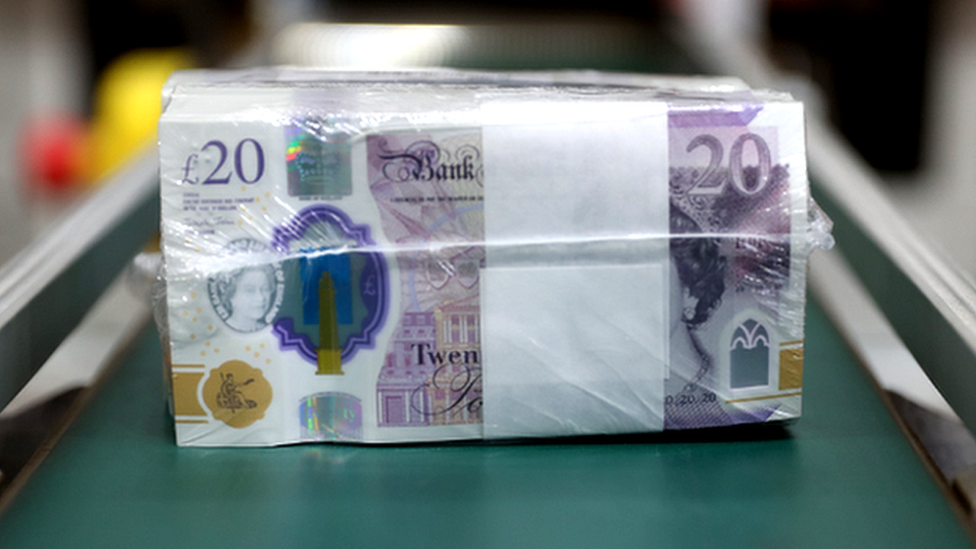Six-month warning over £20 and £50 paper notes
- Published
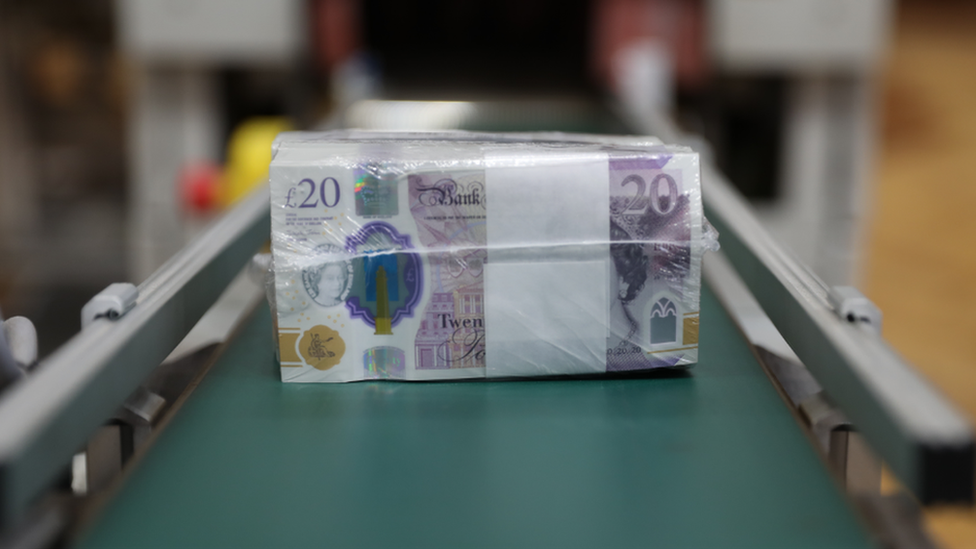
The Bank of England has urged people to spend or deposit their paper £20 and £50 notes before the notes stop being legal tender in six months.
The Bank is replacing the paper notes with more durable plastic ones featuring artist JMW Turner and mathematician Alan Turing.
More than £17bn worth of paper notes remain in circulation, the Bank said.
But after 30 September, people will not be able to use the paper notes for payments in shops and other businesses.
From October, people with a UK bank account will still be able to deposit the paper notes into their account.
Some Post Offices may also accept the old notes as payment for goods and services, or as a deposit to an account accessed via the postal service, the Bank said.
The paper notes can also be exchanged by the Bank of England., external
Sarah John, the Bank of England's chief cashier, said bank notes were being changed from paper to polymer "because these designs are more difficult to counterfeit, whilst also being more durable".
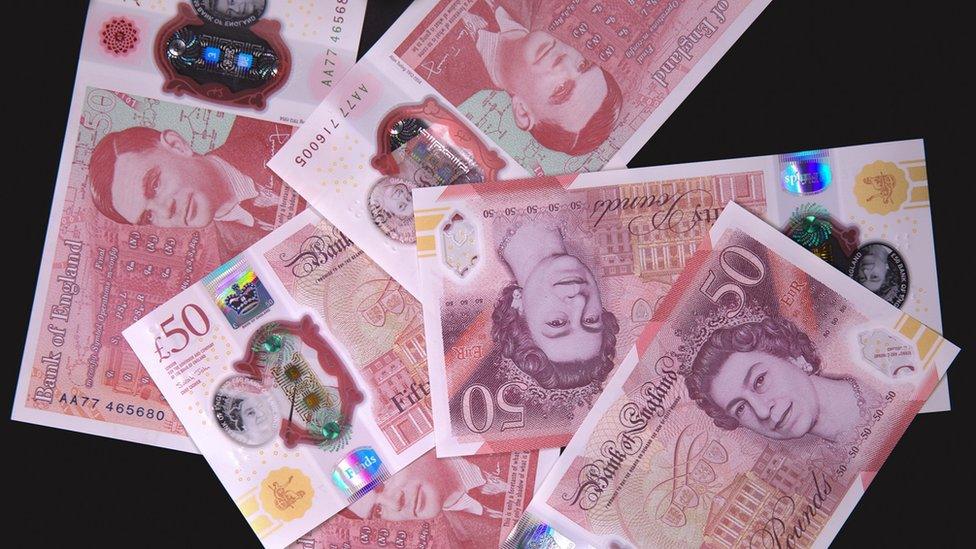
The new plastic £50 note has a series of security features
The Bank withdrew paper £5 and £10 banknotes as legal tender in May 2017 and March 2018 respectively.
It put the polymer £50 note into circulation on 23 June 2021, meaning the Bank's entire collection of currently-printed banknotes is made of plastic. The new note features a portrait of Mr Turing, who conceived modern computing and played a crucial part in the Allied victory over Nazi Germany in World War Two.
The use of cash fell sharply during the coronavirus pandemic, as lockdowns reduced options for spending and online transactions increased.
However, cash still accounted for 17% of all payments in 2020, according to the latest available figures by banking trade body UK Finance, making it the second most-popular way to pay after debit cards. Figures for 2021 will be published this summer.
Related topics
- Published6 January 2022
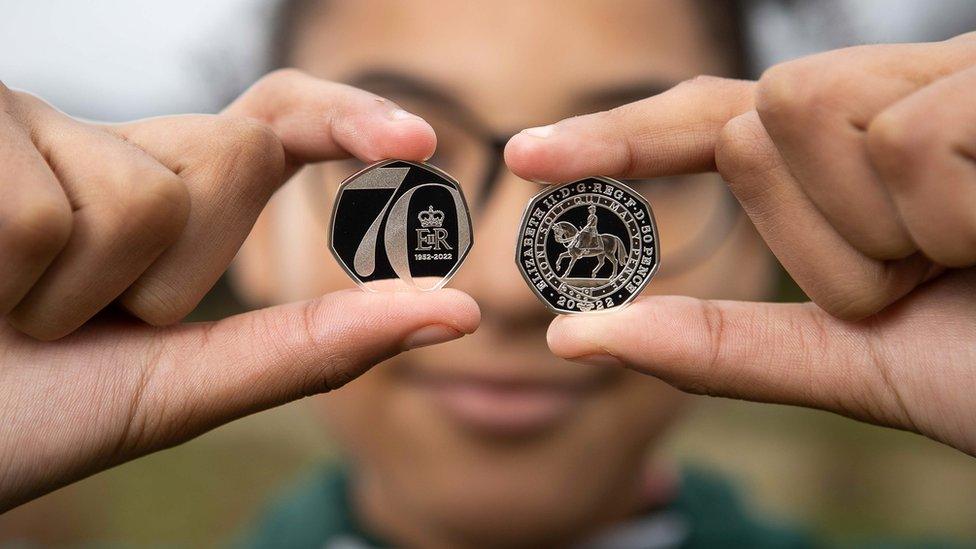
- Published24 January 2022
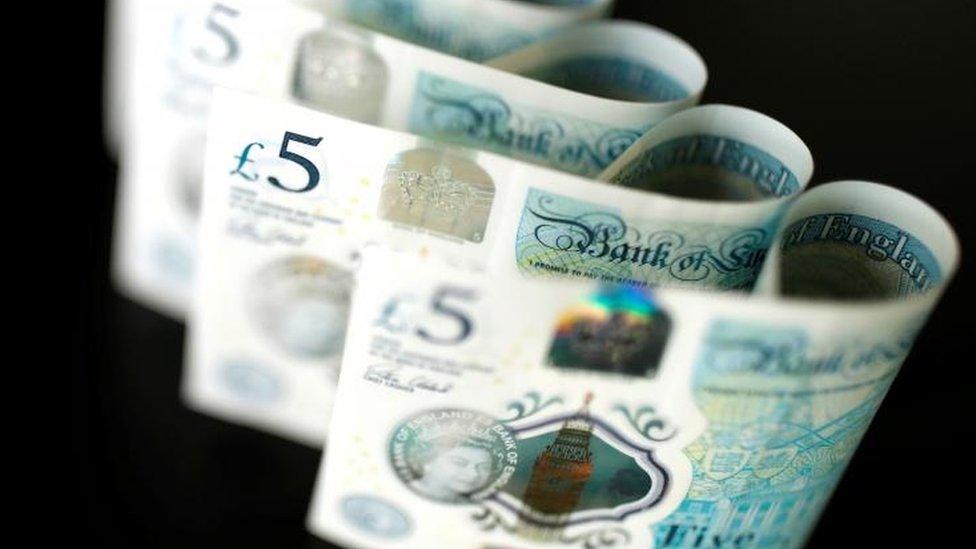
- Published20 March 2022
